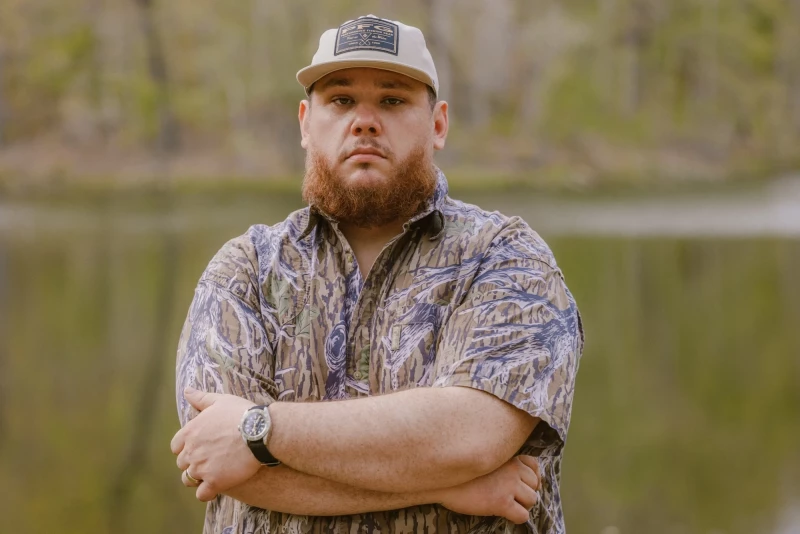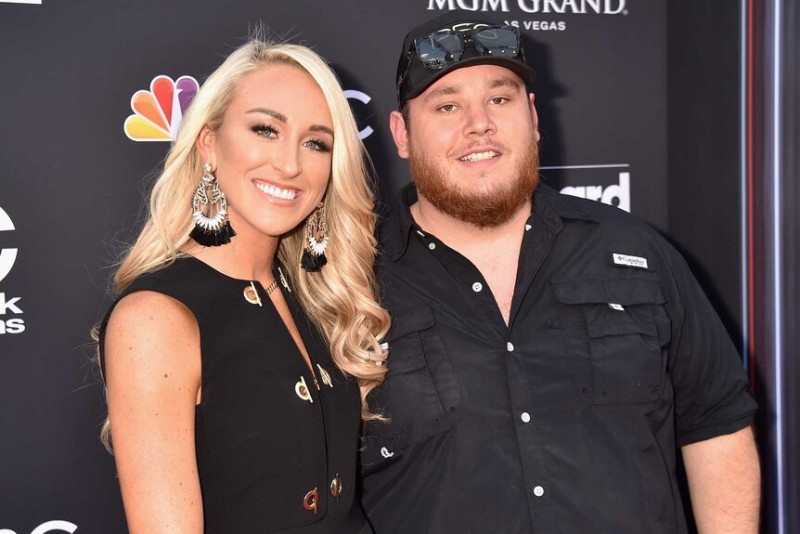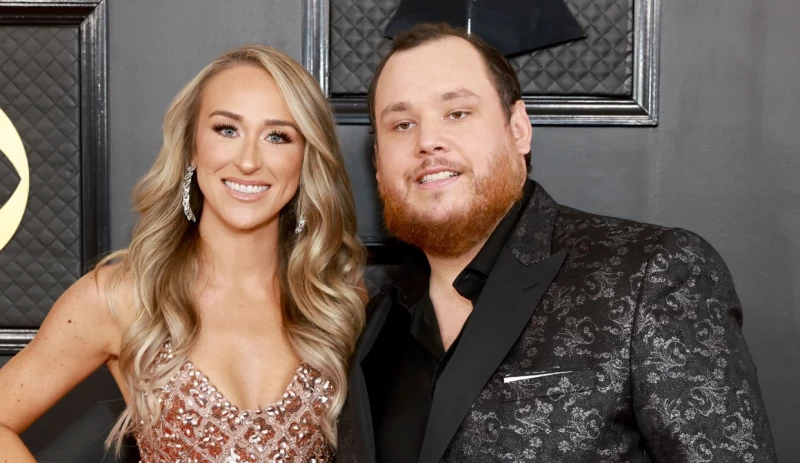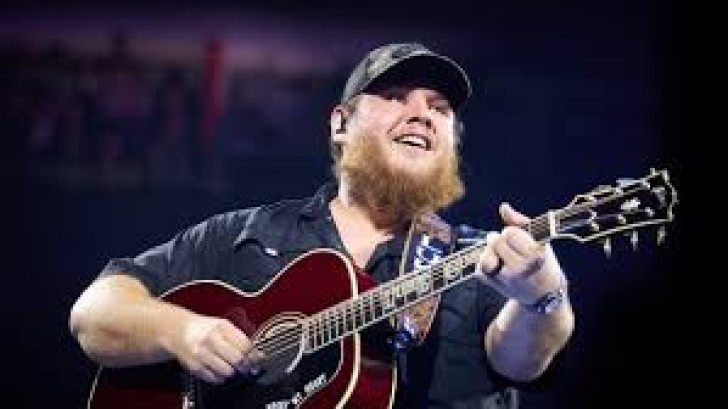- From Washing Dishes to Writing Hits: Luke Combs' First Dollar
- How did Luke Combs' net worth build?
- When Luke Combs Became Country Music's Money Machine
- Luke Combs Net Worth in 2025: Still Printing Money Like It's Going Out of Style
- Luke Combs' Success Playbook: How to Build Wealth Like a Country Star
Luke Combs Net Worth went from washing dishes for minimum wage to building a $20 million empire through authentic country music, relentless touring, and smart business moves that keep the money flowing.
From Washing Dishes to Writing Hits: Luke Combs' First Dollar

Luke Combs wasn't born with a silver spoon – hell, he was probably washing those silver spoons at 14 years old for his first real paycheck. Growing up in Charlotte and later Asheville, North Carolina, Combs learned about earning money the hard way, pulling in maybe $200-300 a week washing dishes at a local restaurant during summer breaks. Not exactly glamorous, but it beat asking his parents for money every time he wanted something.
After high school, his big career move was landing a gig at Bojangles, slinging fried chicken for $8.50 an hour. "I probably ate more chicken than I sold," Combs has joked, but that job taught him something important – he could make about $300-400 a week if he hustled. More importantly, it helped him save up for his first decent guitar and some basic recording gear.
Everything changed when he started playing fraternity parties and local bars during college at Appalachian State. Those early gigs paid anywhere from $50 to $200 a night, which doesn't sound like much until you realize he was making more in one weekend than he was at Bojangles in two weeks. "That's when the lightbulb went off," he's said in interviews. "I was like, 'Wait, I can actually make money doing what I love?'"
By sophomore year, Combs was pulling in $1,000-1,500 monthly from local shows – enough to convince him that dropping out of college wasn't completely insane. His parents definitely thought it was, but Combs had already gotten a taste of financial freedom through music, and there was no putting that genie back in the bottle.
How did Luke Combs' net worth build?
Like every country music hopeful, Combs packed up his truck in 2014 and headed to Nashville with about $3,000 in savings and a whole lot of hope. His first "real" job in Music City was working at a guitar store for $12 an hour while hitting every open mic night and songwriter round he could find. Between the day job and evening performances, he was scraping together maybe $2,000-2,500 a month – just enough to split rent on a crappy apartment with three roommates.
Those early Nashville years were brutal. Combs would clock out from the guitar store, then hit up to three different venues in one night, sometimes earning as little as $25-50 per show. On a really good week, his music income might hit $400-500, but consistency was about as reliable as Nashville weather. "I lived off ramen noodles and whatever free food I could score at industry events," he's admitted.
The game started changing in 2015 when Combs scraped together about $5,000 – money he'd saved from his day job and weekend shows – to independently record and release his first EP, "The Way She Rides." It wasn't a massive budget, but it was everything he had. When that EP started getting some traction on streaming platforms, radio folks began paying attention.
By late 2015, things were looking up. Combs was making $3,000-4,000 monthly between streaming royalties, bigger show fees ($200-500 per gig), and selling t-shirts and CDs at performances. For the first time, his music income was consistently beating his day job wages, which gave him the confidence to finally ditch retail and go all-in on music.
Then "Hurricane" happened in 2016, and everything went completely bonkers. Within six months, that one song had generated over $50,000 in streaming and radio royalties, and suddenly Combs was commanding $2,000-5,000 per show. By the end of 2016, industry people estimate he was clearing $15,000-20,000 monthly from all his music-related income combined.

When Luke Combs Became Country Music's Money Machine
The period between 2017 and 2019 was when Luke Combs went from "up-and-coming artist" to "holy shit, this guy is everywhere." His debut album "This One's for You" didn't just succeed – it absolutely dominated, camping out at #1 on the country charts for 50 weeks straight and turning into a money-printing machine.
The numbers from this era are pretty wild. "Hurricane" alone has made over $5 million in royalties since its release, while hits like "When It Rains It Pours" and "One Number Away" each brought in $3-4 million. By 2018, Combs was getting $75,000-100,000 per show and playing 80-100 dates a year. Quick math: that's somewhere between $6-10 million annually just from touring.
His streaming numbers were absolutely insane during this peak. We're talking 50-80 million monthly Spotify streams, which translates to roughly $200,000-300,000 in streaming revenue per month. Add in Apple Music, Amazon, and all the other platforms, and his monthly streaming income was easily hitting $400,000-500,000.
When "What You See Is What You Get" dropped in 2019, it was game over for the competition. The album hit #1 on both country and pop charts, moving over 172,000 copies in the first week alone. Industry analysts figure that album generated $8-10 million in its first year across all formats.
During this peak period, financial experts estimate Combs was pulling in $12-15 million annually from everything combined – touring, streaming, album sales, merch, and publishing royalties. His show fees had jumped to $150,000-200,000 per performance, and he was selling out 20,000-seat venues like it was nothing.
Luke Combs Net Worth in 2025: Still Printing Money Like It's Going Out of Style

Fast-forward to 2025, and Luke Combs is sitting pretty with an estimated $20 million net worth. Unlike a lot of artists who blow through their peak earnings buying stupid stuff, Combs has built a money-making machine that keeps humming even when he's not actively touring or releasing new music.
His touring income is still absolutely massive. Combs' 2024 tour grossed over $50 million, and he pockets roughly 60-70% after expenses. His per-show fee has reportedly hit $300,000-400,000 for headlining gigs, and he's consistently selling out football stadiums and amphitheaters across the country. Not bad for a guy who used to play for gas money.
The streaming gravy train keeps rolling too. His catalog generates approximately $200,000-250,000 monthly across all platforms, with older hits like "Hurricane" and "Beautiful Crazy" showing zero signs of slowing down. With over 10 billion total streams globally, he's one of the most-streamed country artists ever.
Combs has also gotten smart about diversifying beyond just music. He owns a piece of a Nashville recording studio, launched a successful merch company, and has invested in real estate across North Carolina and Tennessee. These business ventures reportedly bring in another $1-2 million annually.
Publishing royalties continue to be a nice steady income stream, with Combs earning roughly $100,000-150,000 monthly just from radio play. He's also cashed in on sync licensing deals, getting his songs placed in commercials, TV shows, and movies for some pretty hefty one-time payments.
Industry insiders estimate Combs' current annual income at $8-12 million, depending on his touring schedule and whether he releases new music. The smart money says his financial team has focused on building long-term wealth rather than flashy spending, investing heavily in retirement accounts, real estate, and businesses that'll keep paying him long after he hangs up his guitar.
Luke Combs' Success Playbook: How to Build Wealth Like a Country Star
Throughout interviews and social media posts, Luke Combs has dropped some serious knowledge about how he went from washing dishes to washing in millions. His advice is surprisingly practical and applies way beyond just the music business.
First rule: outwork everybody else. "There's no magic formula," he's said repeatedly. "When other people were going home, I was playing another show. When they were sleeping in, I was writing songs. Success isn't rocket science – it's simple math. More work equals more opportunities, period."
Financial discipline was huge for Combs' wealth building. "I lived like I was broke for the first three years after I started making real money," he revealed on a podcast. "While other artists were buying fancy cars and chains, I was paying off debt and investing back into my career. That foundation is what let me take bigger risks later."
Ownership has been a key part of his strategy: "Own your masters, own your publishing, own everything you possibly can," he tells aspiring artists. "I learned early that the real money isn't in the advance check – it's in the royalties that pay you for the rest of your life. Don't trade long-term wealth for short-term cash."

Staying authentic hasn't just been good for his soul – it's been good for business. "I never tried to be somebody I wasn't," he explains. "Country music fans can smell fake from a mile away. Being genuine isn't just the right thing to do – it's smart business because people connect with real."
Diversification has protected his wealth when the music industry gets crazy. "Don't put all your eggs in one basket," he frequently says. "Music careers can be unpredictable, so I invested in businesses and real estate that make money whether I'm on tour or sitting at home watching Netflix."
Maybe most importantly, Combs surrounds himself with people smarter than him: "I'm good at writing songs and performing, but I'm not a financial genius," he admits. "I hire people who are way smarter than me in those areas and actually listen to their advice. Your team can make or break your wealth building."
Finally, he keeps perspective on what really matters: "Money doesn't change who you are – it just amplifies it," he's said. "I try to remember where I came from and help other people climbing the same ladder. Success isn't just about how much you make – it's about what you do with it."
From washing dishes for minimum wage to making millions per year, Luke Combs proves that with the right mix of talent, work ethic, and smart money moves, you can build serious wealth even if you start from absolutely nothing. Not bad for a guy who once thought $300 a week was good money.
 Usman Salis
Usman Salis

 Usman Salis
Usman Salis


